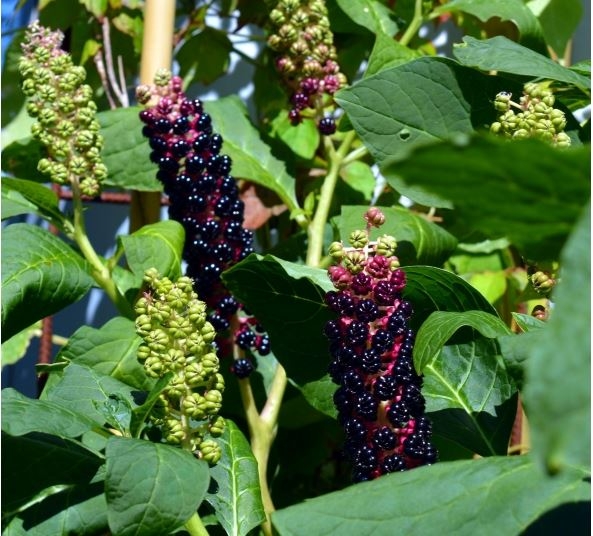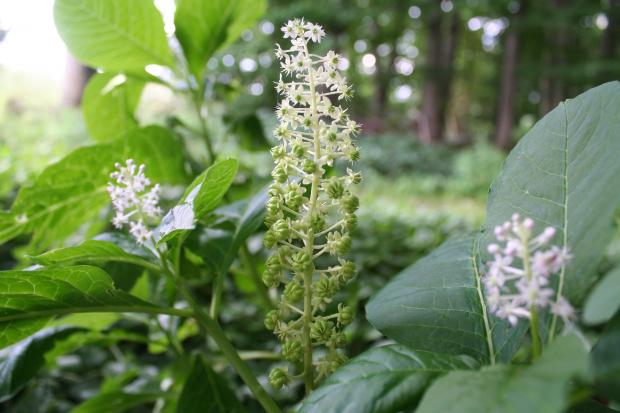
Public Domain Photograph
Pokeweed (Phytolacca americana, also called pokeberry, poke, or American pokeweed) is an herbaceous, shrub-like perennial with simple, alternate leaf margins with variable stem colors ranging in greens, pinks, and reds. Pokeweed produces small white to pink flowers that develop into glabrous red to deep purple berries in a cluster-like form. The genus Phytolacca has a variety of species native to South America and East Asia, but this particular species is only native to southeastern North America.
Though the large majority of a pokeweed plant is known as poisonous in its mature state, the plant has been used by people for millenia for its medicinal and edible properties. In early spring, shoots of this plant are harvested for culinary uses when about six inches in height. The young green shoots must be properly blanched in water before eaten to reduce the risk of ingesting toxins produced in the more mature plant. This was and regionally still is a popular cultivated vegetable in the Southeast, serving as a wonderful substitute for spinach and asparagus. The young leaves were also harvested, blanched, and mixed with other wild greens to enhance the pokeweed greens’ flavor.

Public Domain Photograph
Other uses for pokeweed include as paints/dyes and for treating ailments. The juice from the berries contain a deep red color used by native groups, such as the Algonquian tribes, as paint and to dye textiles (Edge 2007:229). Historically, various parts of the plant were used medicinally by native groups and European settler alike in the Southeast. The roots of pokeweed were steeped to make a tea-like brew to soak aching joints, while the plant was also made into a topical poultice to cure skin ailments (Covey 2007).
Pokeweed has also been celebrated through song as seen through the hit single “Polk Salad Annie”, written by Tony Joe White and sung by a variety performers, including Elvis Presley and Conan O’Brien. These “poke sallet” greens were regionally canned in the beginning of the 1950’s until the early 2000’s by two commercial canneries, Bush Brothers here in Knoxville and Allen Canning Company of Arkansas (Edge 2007:229). This weedy plant can be found growing in disturbed places such as roadsides and old fields, if you decide to pick some and try one of the various recipes posted online. Just don’t forget to blanch them first, or you will likely end up with a mean stomachache!
For More Information:
Covey, Herbert C.
2007 African American Slave Medicine: Herbal and Non-Herbal Treatments. Rowman & Littlefield Publishers, Inc., Lanham, Maryland.
Edge, John T. (Ed.)
2007 The New Encyclopedia of Southern Culture: Volume 7: Foodways. University of North Carolina Press. Chapel Hill, North Carolina.